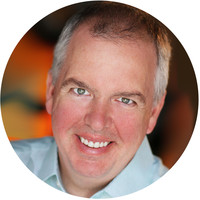The bloodshed in the Central African Republic has been mounting this week as violence between Muslims and Christians escalates. France, the former colonial power, is deploying its soldiers to CAR in an attempt to bring a peaceful conclusion to the conflict. Some fear that the country is on the verge of a genocide.
As communal violence spreads, CAR President Michel Djotodia has ordered his army to stay in barracks and instead allow international peacekeepers to maintain law and order. The credibility of the army has been undermined by reports that soldiers with ties to Muslim rebels have themselves committed atrocities.
CAR, one of the most impoverished countries in Africa, has lurched from violent rebellions to coups and back again since it gained independence in 1960. Djotodia himself has been in power only since the spring, having been given the presidency by Seleka — a rebel alliance — when it overthrew the incumbent Christian president, Francois Bozize. Unfortunately, Djotodia has little effective control over Seleka rebels, some of whom have been integrated into the army. Meanwhile, forces loyal to Bozize are believed to be supporting the majority Christian population's reprisals against Seleka atrocities.
As troops arrive from France to police the streets and end the violence, French President Francois Hollande is suffering from dismal approval ratings at home and the growing perception that he is indecisive and not up to the task of solving his country's domestic challenges. Instead, Hollande seems particularly keen to flex his muscle abroad and fully enjoy the latitude and deference in foreign affairs that he is pointedly denied at home. With a mandate from the United Nations Security Council, Hollande is sending troops to Bangui, the capital of CAR, only months after French soldiers were deployed to Mali in a similar action.
France's role as the "gendarme of Africa" comes as a result of not only its colonial ties to the region but also its continued willingness to shoulder responsibility in difficult situations such as these and maintaining military bases on the continent in between crises. Although French soldiers are taking the lead, the European Union has committed about $70 million to the mission, and Britain's Royal Air Force is expected to help with logistical support.
By intervening in CAR and Mali, France is working to ensure that failed states or no man's lands do not arise, as they can shelter terrorists and extremists. The lessons of Taliban control of Afghanistan in the 1990s and the support they provided al-Qaida in advance of the 9/11 attacks half a world away are equally important today as more militant Islamist groups gain traction in Africa. The ramifications of allowing safe havens to be established will not be limited to these countries and their immediate neighbors. Failing to take adequate steps now could leave open the door for lethal consequences farther afield in the months and years to come.
To make matters worse, many experts believe that Joseph Kony, the notorious leader of the Lord's Resistance Army, has taken refuge in CAR, safe in the knowledge that the ineffective central government will have no real power to stand up to him or evict him. Kony has kidnapped thousands of child soldiers to fill the ranks of his brutal army. A 3,000-soldier force from his native Uganda, supported by U.S. military advisers, is trying to bring Kony to justice — but with little to show for the effort. The LRA has traveled widely across the heart of the continent, including the Democratic Republic of Congo and South Sudan, as well as CAR. The film "Kony 2012," which rapidly accumulated millions of views on the Internet, brought Kony to international attention earlier this year.
Djotodia claims to be close to obtaining Kony's surrender, but it is unclear whether the French mandate in CAR would expand to tracking him down if he were to remain at large.
Critics of Hollande, however, contend that this African adventurism is as much an attempt to distract disgruntled French voters from stagnant economic and political gridlock as it is an attempt to secure peace and security abroad. Battered by plummeting approval ratings and seemingly devoid of "big ideas" to tackle his own country's troubles, Hollande appears eager to appropriate the imagery of Charles de Gaulle by deploying French troops abroad at times of trouble such as these.
The risks of genocide and the potential for an all-out civil war between Christians and Muslims in CAR mean that France's actions are necessary both for the local population and for the wider benefit of the international community. However, when a lasting peace is eventually restored, Hollande still will need to turn his attention to the more difficult battles that remain to be fought at home.
Timothy Spangler is a writer and commentator who divides his time between Los Angeles and London. His radio show, "The Bigger Picture with Timothy Spangler," airs every Sunday night from 10 p.m. to midnight Pacific time on KRLA AM 870. To find out more about Timothy Spangler and read features by other Creators Syndicate writers and cartoonists, visit the Creators Syndicate Web page at www.creators.com.






View Comments